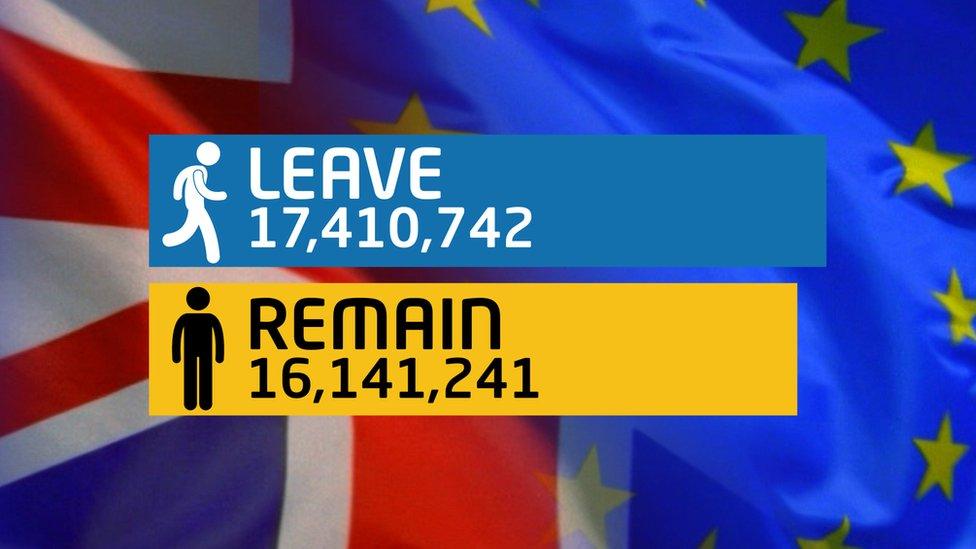Brexit: What happens if Theresa May's deal is rejected?
- Published
- comments
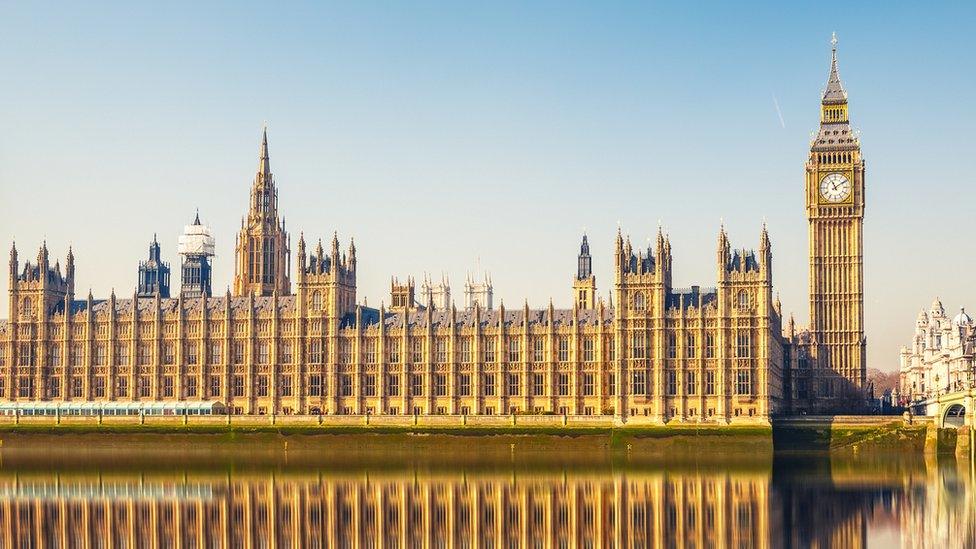
An important vote is taking place in the House of Commons next week which will determine what happens with Brexit
If Parliament rejects Theresa May's Brexit deal, we don't know exactly what will happen. It's incredibly complicated.
There are five main options:
No deal
New deal
General election
Another referendum
No confidence vote
The UK's Withdrawal Act explains what the government must do next.
Typically, it would have up to 21 days to make a statement to MPs about how it intends to proceed. Then, there would then be a seven-day period when it lays its proposals before Parliament.
But in an important vote in the House of Commons recently, MPs voted for changes to the parliamentary process if Theresa May loses the vote. On Wednesday, they passed an amendment which will force the prime minister to return to parliament with a fresh plan within three days if her deal is rejected.
They also backed calls to give them a direct say in what happens if Mrs May's deal is rejected next week. Instead of MPs just "taking note" of what the government tells them, they would also be able to exert more influence by voting on what they want the government to do next - although any proposed alternative plans of action would still have to be put into law by the government.
How are MPs set to vote?
Labour, the Lib Dems, the Scottish National Party (SNP), the Democratic Unionist Party (DUP) and even some Conservative MPs from her own party are set to vote against the deal.
The prime minister relies on the 10 DUP MPs to vote on her side when she has votes in Parliament, in order to have what is called a majority. So the fact that the DUP is against the deal could make winning the vote difficult.
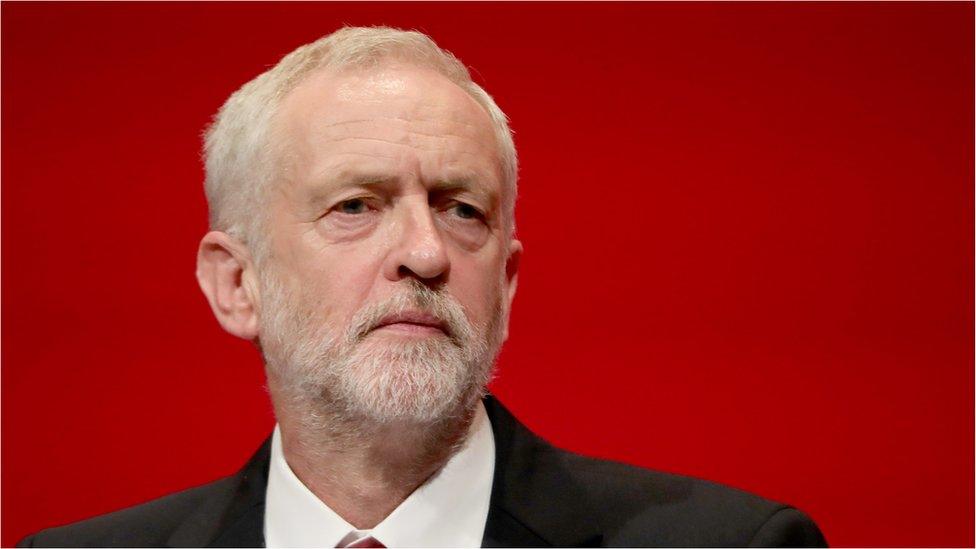
Labour leader Jeremy Corbyn has spoken out against Mrs May's Brexit plans
Some who say they cannot support her plans might abstain instead of voting against it (when they decline to say yes or no), but Mrs May will need enough votes supporting the deal to press ahead with her plans.
When is the Parliament vote on Brexit deal?
MPs are due to vote on Theresa May's Brexit deal on Tuesday 15 January.
What happens if Theresa May's deal is rejected?
There are a number of possible scenarios if MPs vote to reject Mrs May's Brexit deal or if the vote does not happen again.
The main ones that people are talking about are:
1. No deal
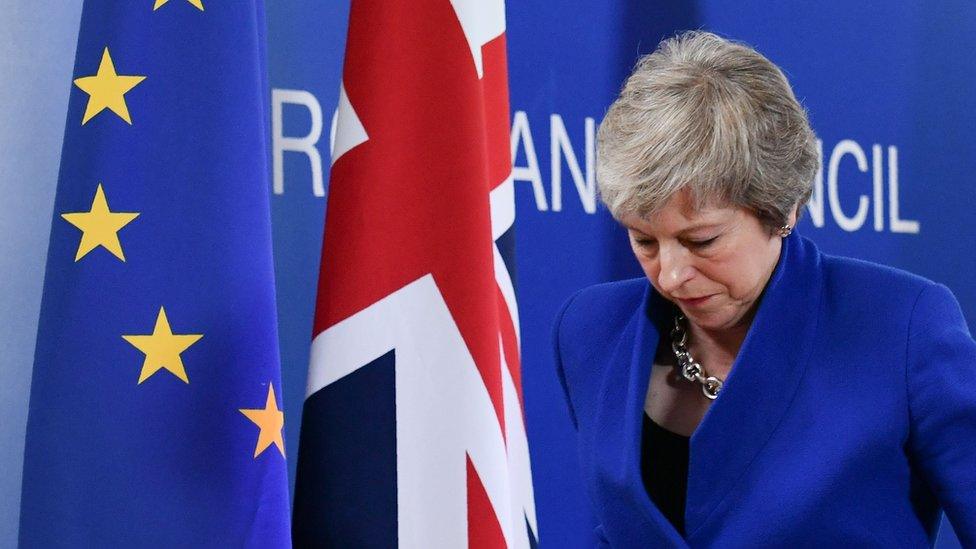
The UK could head towards a 'no deal' Brexit. This does exactly what it says on the tin - we would leave the EU having failed to reach an agreement about how we leave the group.
Without plans in place, border checks could be re-imposed (which would be an especially big deal on the border between Northern Ireland and the Republic of Ireland), and transport and trade between the UK and the EU could be severely affected. Adults may not be able to drive in EU countries without a special driving permit and it could cost more money to use your phone abroad in Europe.
Peter Barnes - a senior elections and political analyst for BBC News - explains: "The government would probably want to pass some legislation to prepare for no-deal but that's not strictly essential."
Mrs May has refused to rule out a 'no deal' Brexit if Parliament votes against her deal, but Labour leader Jeremy Corbyn told ITV that "nobody is going to allow 'no deal'".
Despite that, some people say that 'no deal' is the best thing for Britain as it means Britain will be completely free to build new relationships around the world and would mean the UK wouldn't have to pay any more money to the EU.
2. New deal

If there is a 'no deal' Brexit, adults may not be able to drive in EU countries without a special driving licence
This approach would involve the government going back to EU leaders to renegotiate the current deal.
The EU has said they will only make clarifications, not changes, meaning they'll help make it really clear what points in the agreement mean, but they won't actually change any of them.
There isn't really very much time left to do this though, unless the government asks for Brexit to be delayed. So renegotiating the deal could mean an extension of Article 50.
For this to happen, the UK would have to ask the EU for an extension, which could only be granted if all the EU countries agree to it at a vote of the EU Council. But EU leaders have said they will not delay Brexit.
Not only that, but changes would also need to be made to the definition of "exit day" in the EU Withdrawal Act, which MPs would get a chance to vote on.
Mrs May has made it very clear that she believes the deal she has presented to Parliament is the best deal that the UK is going to get.
The EU's chief Brexit negotiator Michel Barnier has also said Mrs May's Brexit plan "is the only possible deal".
3. General election
WATCH: How a general election works in 60 seconds
Another outcome - which Labour says should happen if the deal is rejected - is another general election, in which UK adults vote for a new government. This is what Mr Corbyn is pushing for.
Given all the disagreements in the House of Commons, Theresa May could decide that a general election is one way out of the deadlock in which Parliament finds itself, but she would need two-thirds of MPs to support this move.
As with the 'new deal' option, this could also require an extension of Article 50.
4. Another referendum
For this to be an outcome, the government would need to be convinced it needs to happen and a majority would need to vote in support of this in the House of Commons, where MPs vote on issues.
At the moment, it doesn't appear that the majority of MPs would vote for another referendum to happen. Mrs May is also completely set against another referendum happening at the moment, so either she would need to change her mind - or be replaced.
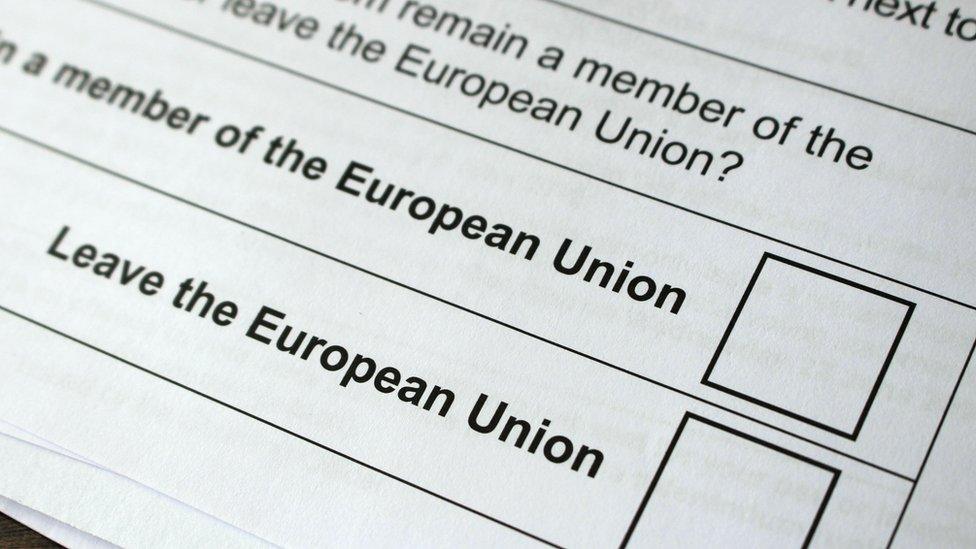
This picture shows the ballot paper from the EU referendum, which took place on 23 June 2016
If it were decided the UK should have another referendum, legislation would need to be passed and there would be a period of time between that happening and the referendum taking place.
This would mean - as with two of the other possible outcomes in this article - that there would have to be a delay to Brexit, as it is now too late to hold a referendum before 29 March.
5. No confidence vote
If the deal is rejected, Labour has already said they would call for a formal 'no confidence' vote in the government. Mrs May could even call for one herself to try to re-establish her authority after a loss.
If the government loses a formal vote of no confidence, there are three possible outcomes.
If there is a clear alternative government (either another minority Conservative government like the on we have now, a coalition government or a minority government of a different party), Theresa May can resign and someone else will take over as prime minister.
If there isn't another clear alternative government, but the government can win a confidence vote within 14 days, the government can continue but perhaps with modified policies.
If there is no clear alternative government, and the government is unable to win a confidence vote within 14 days, there would be a general election. The earliest possible date for the election would be 25 working days later.
Will the Brexit deal go through?
We cannot know for sure what will happen on Tuesday night.
While the BBC's political editor Laura Kuenssberg explains that as things stand, it looks "likely" that Parliament could reject the deal, a lot could happen over the coming days that could completely change the outcome.
"Dozens of her own backbenchers have said publicly they will vote against it. The opposition parties are adamant they will say 'no' too," she explains. "The Tories' supposed partners in government, the DUP, are deeply dug-in to opposing the agreement."
But politicians who have spoken out against it may change their mind when it actually comes to voting.
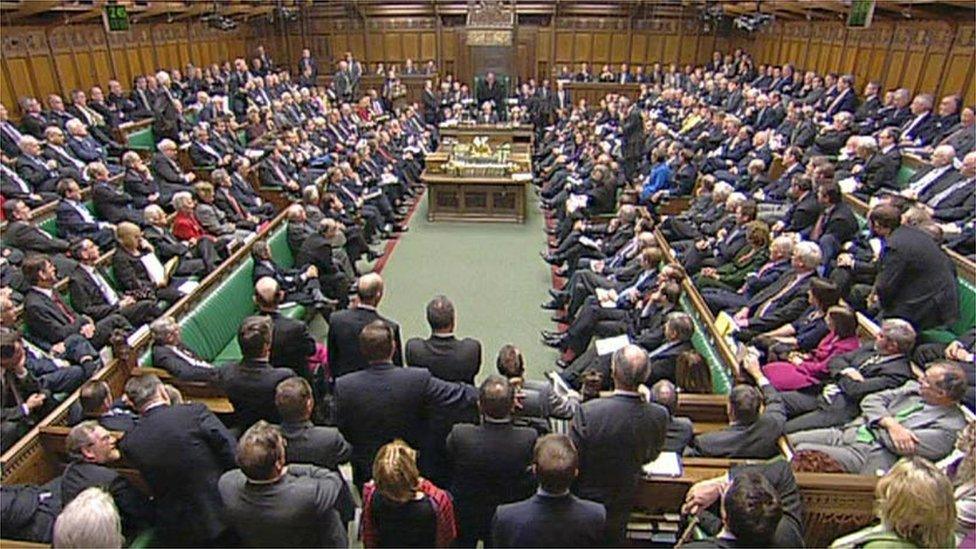
We do not know what the outcome will be of the vote in the House of Commons next Tuesday
Not only that, but it is not uncommon for unexpected twists to happen in politics. Other changes may be voted on before Tuesday that could change how the deal looks and what ends up happening.
Laura explains: "The serious games in the [House of] Commons are far from over."
Can Brexit be cancelled?
The European Court of Justice has ruled that it would be legal for the UK to reverse Article 50 and effectively 'cancel' Brexit, even without the agreement of the other 27 EU countries.
But Peter Barnes explains that it is likely that something major would have to happen (like another referendum or a change of government) for this to take place, given how committed the government is to making Brexit happen.
The government has said repeatedly that it will not cancel Brexit as it is what the people have voted for.
- Published28 November 2018
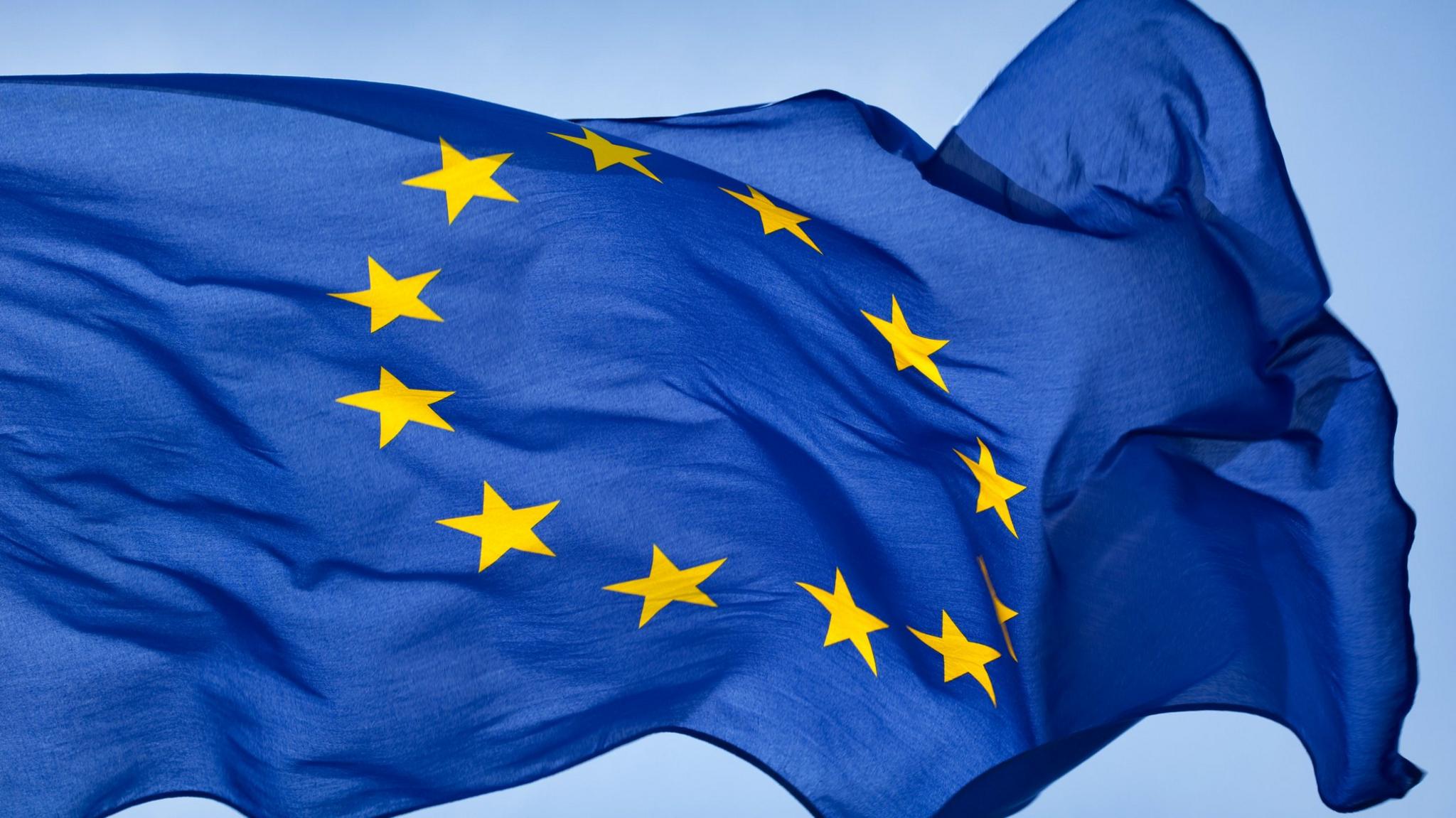
- Published18 October 2018
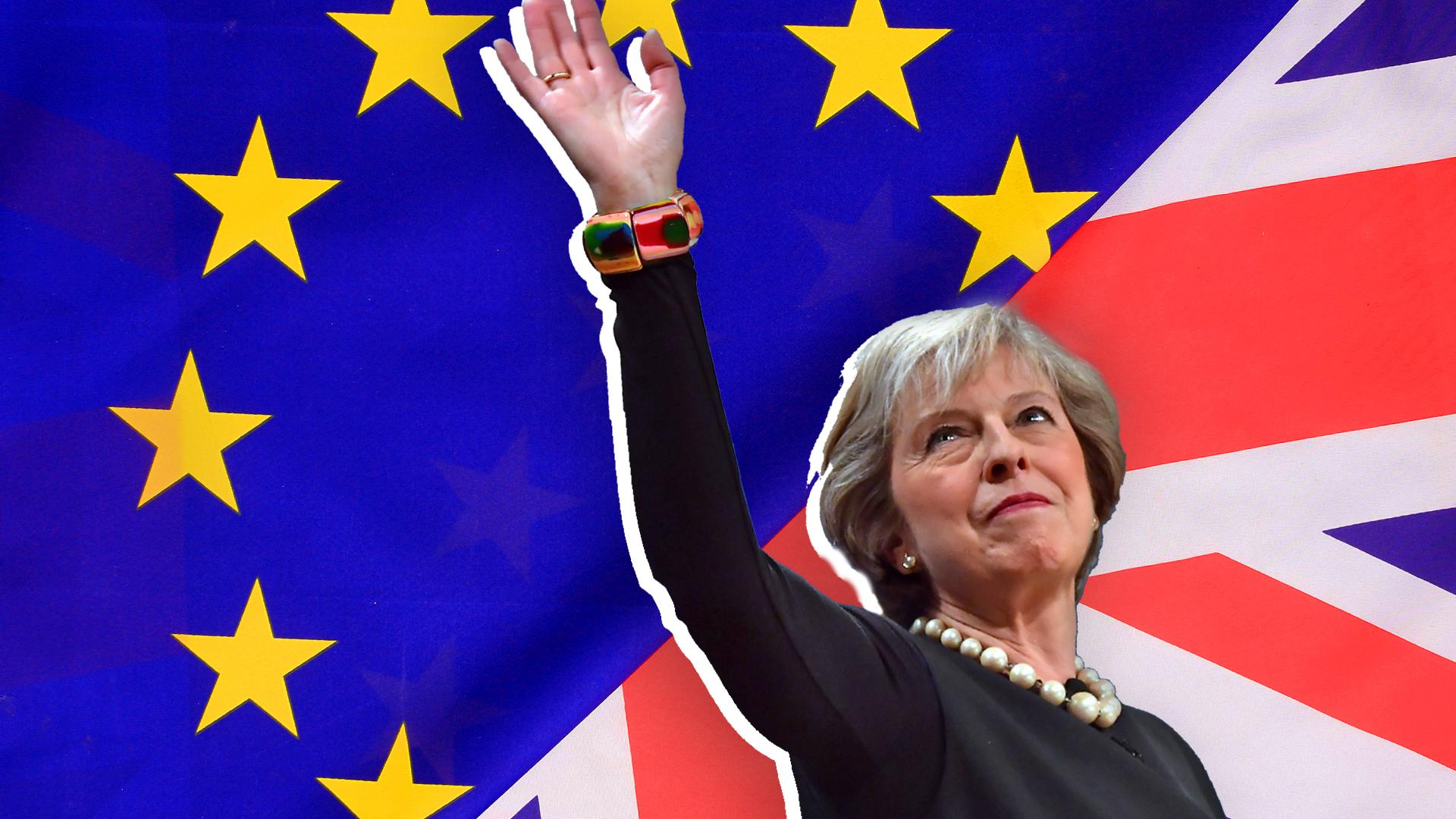
- Published24 June 2016
